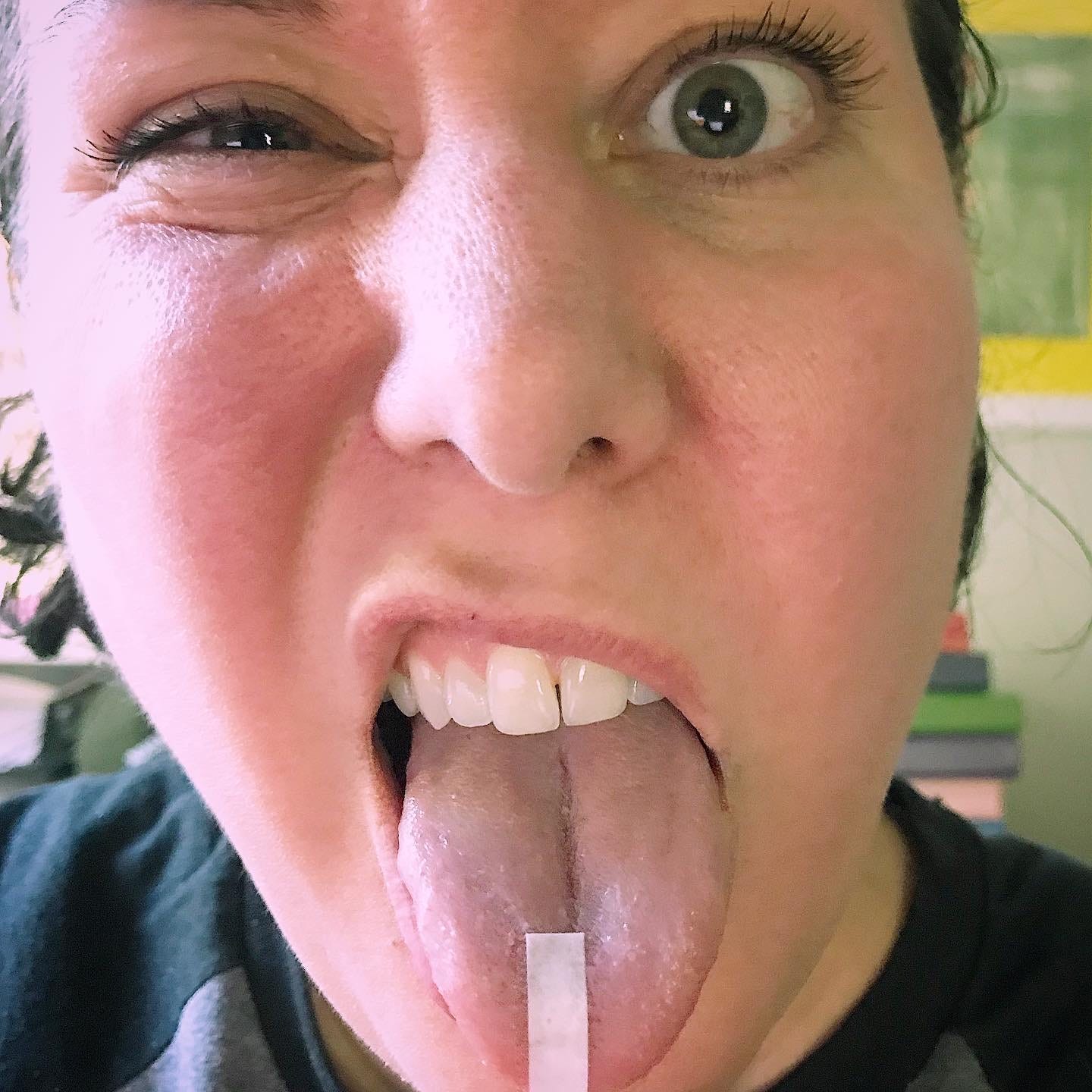“It’s almost as if they’re not actually committed to any demonstrable change.”
I felt it bubbling up. I tried to choke it back down because I hate being that person but out it came. It was during a particularly exhausting week of hearing men’s takes on issues affecting people who aren’t men and seeing other men jump up in agreement.
“Posting to your story saying ‘This is problematic’ with no explanation.”1
“I cringe if I’m ever referred to as an ‘influencer.’”2
Cool stories, bros.
I hate being the person who says that organizations and businesses are interested in allyship as long as it’s performative and doesn’t require them to give up power or be uncomfortable in any way. Truly, I hate when I’m in that frame of mind because then I also have to face saying the quiet part out loud:
Then why bother?
It’s pointless.
Nothing is really going to change.
Why am I wasting my time? Why should others waste their time if I’m out here saying it’s pointless?
I’m bitter.
Or, in the words of Lyz Lenz - Am I bitter or am I just seen as bitter because I won’t be quiet?
Calling someone bitter is similar to using a thought-terminating cliche - it’s meant to cut the conversation short by shifting the conversation away from the behavior at hand and toward the choice of expression used by the person. It shifts the responsibility away from the people who have the ability to do something about the issues expressed to the person expressing the concerns, making them account for their behavior.
The purpose of framing someone as bitter is not to challenge but rather to silence. Not to engage in productive discourse but to focus on respectability politics: “We would be willing to help you if only you were nicer about it.”
Guess what? We’ve tried being nice about it. We’ve tried using broken reporting systems to hold organizations accountable only to have the line moved when we get closer. We’ve tried emailing companies to personally ask for accountability. When all of that fails, occasionally people take to social media in a last ditch attempt to make people pay a-fucking-ttention. And what do we hear in response?
“Not like that.”
“Thanks for your feedback. While we aren’t going to change anything now, we maybe might think about possibly changing it in the indeterminate future.”
Also in the words of Lyz: “The truth is there is no tone that I could use to say what I have to say that would ever make my message more palpable, more acceptable to the power and the patriarchy I am trying to change.”
Why are we still fighting the same battles? Remember when white people found out racism was real in 2020 and when men in the beer industry found out sexism was real in 2021? Because Pepperidge Farms remembers. And so do I. And so do a lot of people.
Consider that being bitter and refusing to “forgive and forget” is rather the failure of others to listen and act.
When we react to someone by calling them bitter or angry rather than listening to them and acting on what they say, we’re deflecting from the issues. We’re shifting the burden of proof from inequitable behavior to having to defend the legitimacy of feelings.
If you’ve relegated someone to the “bitter” pile, the following message is for you:
We’re not bitter, you’re not listening.
If you’ve been relegated to the “bitter” pile, the following message is for you:
You’re going to be called angry or bitter anyway, so don’t waste your time trying to nice up your message to make it more agreeable. To summarize Moira Donegan, any progress is going to be met with resistance, so we have just as much to lose with small steps as big ones. If people are going to lash out anyway (or share their hot takes on social media), then stand ten toes down and demand the change you really want.
Old Number Seven
Out of our five basic tastes (sweet, sour, salty, bitter, and umami), bitterness is hands down (tastebuds down?) my favorite to research and talk about. While I love learning about all of our basic tastes, bitterness holds a special place in my heart.
While some tastes, such as sweet, salty, and umami, evolved to alert us to needed nutrition (energy, fluid balance, and protein, respectively), bitterness evolved as a warning system for something potentially poisonous or toxic. While we have only about three genes to detect sweetness, we have at least twenty-five different genes that detect bitter tastes. Why? Because there are a lot of things out in the world that can poison us, whereas a sweet taste receptor’s only job is to find sugar.
Bitterness can occur naturally, such as endive or Brussels sprouts; however, it can also occur due to chemical changes, such as heavily burnt or charred foods. Bitterness doesn’t have a unifying concept, either, like an amino acid or a sodium ion. Rather, bitterness can come from nitrogen-based alkaloids, sulfur-based glucosinolates, triterpenes, and more.
One of the original forms of testing people for bitterness sensitivity is a compound known as PTC. Its use for this purpose was discovered by accident at Dupont in 1930. Two chemists were working close to each other when one of them fumbled with the PTC he was pouring into a container, which sent a puff of PTC powder into the air. The other chemist inhaled some and tasted a sharp bitter taste. This reaction surprised the chemist who had caused the accident as he had also inhaled some of the powder and tasted nothing at all. A spontaneous experiment began as other chemists and technicians were asked to taste the compound – some could taste the bitterness and some could not.
In 1999, a Columbia graduate student discovered the gene responsible for detecting bitterness, and it was later named TAS2R38. This gene is in a strand of DNA on chromosome number seven and is responsible for bitterness sensitivity.
People can be broken into three bitterness sensitivity groups: non-tasters, tasters, and supertasters. Tasting status is actually really easy to determine and relatively inexpensive. Tasting status can be determined by using N-Propylthiouracil test paper, colloquially known as PROP (pronounced as “prope” not “prop”) paper. You can buy PROP paper on Amazon and you get 100 strips for about $6.00.3
The actual test is just sticking a test strip on your tongue. If all you taste is paper, you’re a non-taster. If you taste bitterness, you’re a taster. If the bitterness is overwhelming, you’re a supertaster. Overall, tasters make up about 50% of the population, whereas non-tasters are about 30% and supertasters are about 25%.
Non-tasters are not sensitive to bitterness. Tastes are sensitive to bitterness. Supertasters are extremely sensitive to bitterness. The name “supertaster” is a bit of a misnomer because supertasters don’t have exceptional tasting abilities. Rather, they are very sensitive to bitter compounds as well as other things, such as capsaicin.
If you’re working on developing your palate, I highly recommend finding out your taster status. It won’t completely change your life or your tasting skills, but it is another parameter to know about yourself and your palate. If you lead sensory panels, it can also be helpful to know the tasting status of your panelists. Besides knowing who is sensitive to bitterness and who isn’t, non-tasters seem to be less sensitive to compounds like diacetyl.
And finally…
Before we leave each other, here are a few more things I am up to these days:
Preparing for the Crafted for Action Conference. Buy! Your! Tickets! If you’ll be in Atlanta for the in-person events, let’s meet up!
Reading (still) Flavorama: A Guide to Unlocking the Art and Science of Flavor by Dr. Arielle Johnson. This book is PACKED with information, so it’s taking me a while to get through it. I also get excited about what I’m reading and drop the book to text friends, do more research, etc.
Listening to Poverty, by America by Matthew Desmond. I grew up in one of the poorest counties in Missouri, so I was exposed to poverty throughout my childhood, i.e. classmates who only saw their siblings at school because county family services had removed them from their home, kids who came to school with their heads shaved because their families couldn’t afford lice shampoo, etc. I have no patience for the individual exceptionalism bootstrapping rhetoric and if you’re wondering why, I recommend this book as a good primer.
The amount of men I saw agreeing with this is particularly infuriating. I’m willing to bet a good deal of men commenting would also say that they’re allies and support women, etc. etc. To make it perfectly clear, if a person from a historically excluded group posts about a brewery’s actions being problematic, it is not on them to educate you why those actions are problematic. If you don’t understand why something is problematic, fucking figure it out yourself. Google “Why is ____________ problematic?” Don’t decide that you don’t aCTuAlLy have to pay attention to it because the poster didn’t take on the free emotional and mental labor of educating you in an IG story.
I’ll have a newsletter on influencer and creator culture in the future. Still, the moral of the story is that if men dominated the influencer and creator space, people would gush over the “entrepreneurs” instead of denigrating women and non-binary people who dare to get paid for something society thinks they should provide for free.
PROP paper is one of those oddly specific sensory things I usually have on my person, so if you see me out and about, feel free to ask if I have a PROP strip you can have.





I had never heard of PROP papers; thank you for this tip. I'll be ordering some today.